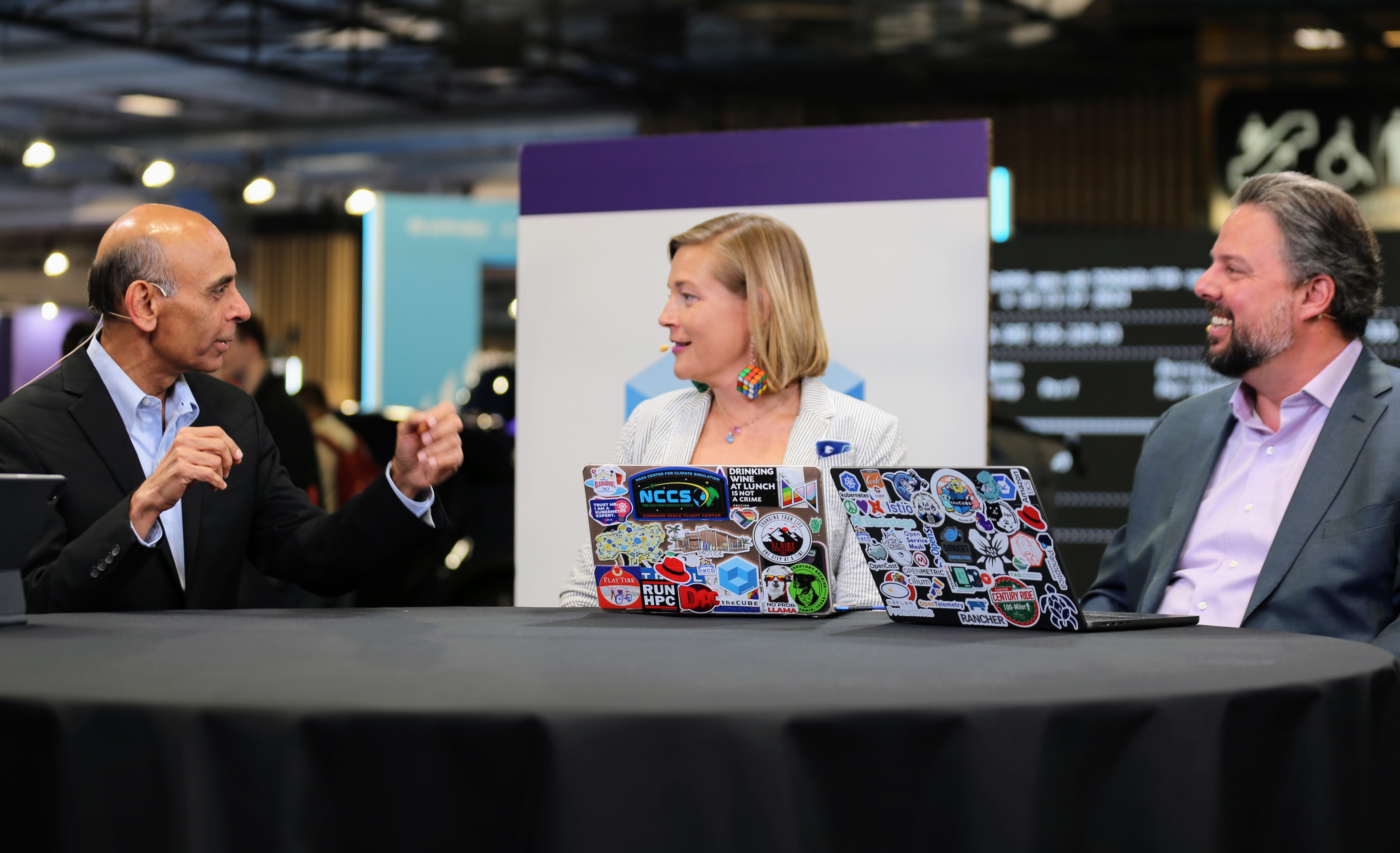 NEWS
NEWS
 NEWS
NEWS
 NEWS
NEWS
Kubernetes is having its Linux moment, reaching a unique point in its 10-year history. That’s the key finding from our analysts reporting live from the KubeCon + CloudNativeCon Europe 2024 event. They credit collaboration and community, with a dose of artificial intelligence, to Kubernetes’ growing ubiquity.
“We’ve been really seeing people lean into how they’re helping build communities here,” says theCUBE Research principal analyst Rob Strechay. “KubeCon Day 0 yesterday was super interesting because we always talk about the intelligent data platform, and they’re showing how to go through all the different open-source options and how to make it easy.”
Strechay was joined by co-hosts Savannah Peterson and Dustin Kirkland, along with SanjMo principal Sanjeev Mohan, at theCUBE, SiliconANGLE Media’s roving news desk. They discuss breaking news, key findings and top guest moments from the largest KubeCon to date. (* Disclosure below.)
The scale of data management needed for AI-powered applications is pushing demand higher for Kubernetes and driving new use cases. Open-source platforms are crucial for supporting different options of running large language model inferences at the edge, driving huge leaps in AI capabilities, according to Mohan.
“Since the Cloud Native Computing Foundation is all about open source, having open-source models come together is actually the right thing to do,” he said, going on to note the rise of the AI engineer powered by the collaborative DevOps movement.
“The AI engineer doesn’t give a damn as to what infrastructure is being used or how to even provision the hardware. That’s the optimization challenge [Kubernetes can address],” Mohan continued.
Recollecting some of the technical tracks at KubeCon EU, Kirkland highlighted several developments within the Kubernetes ecosystem supporting better optimization of AI-related computing infrastructure.
“I was talking about four different layers of abstraction that allow for denser packing of workloads and higher utilization this morning,” he said, citing the Nvidia keynote and contributions to the CNCF community.
The analysts also touched on the rising security concerns associated with AI and open-source technologies and point to theCUBE’s earlier segment with CNCF Executive Director Priyanka Sharma for insights. The ubiquity of Kubernetes puts it at inherent risk, and that can’t be taken for granted, according to Sharma. To this end, the CNCF has a working group to explore such issues.
“I see two gaps. One is about security governance. I think there’s not enough. The second thing I think [Kubernetes] missed is the importance of metadata,” said Mohan, noting the CNCF’s recently published paper from the working group.
“I went through it line by line to prepare myself [for KubeCon]. They talk about the advantages of Kubernetes as a platform and the layers of data, but there’s no mention of metadata. I think Kubernetes has a huge opportunity to bubble that up. Once you have metadata end to end, you control it. You have full transparency, full visibility into the ecosystem,” Mohan concluded.
Here’s the complete keynote analysis video discussion from KubeCon + CloudNativeCon Europe, and tune in here for live coverage March 20-22.
(* Disclosure: TheCUBE is a paid media partner for the KubeCon + CloudNativeCon Europe event. No sponsors have editorial control over content on theCUBE or SiliconANGLE.)
THANK YOU